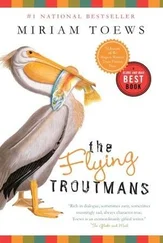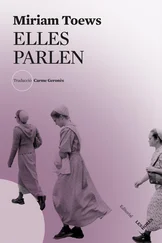While Aggie and I ate, Noehmi sang Jonathan Richman songs to all of us. We chewed and smiled and Aggie clapped.
Where did your friends go? said Aggie.
To get a camera, said Noehmi. They want to make a documentary about the protest.
Where are they going to get a camera? I asked.
I don’t know, said Noehmi. They’ll probably get sidetracked along the way. Or they’ll come back with paint instead, or beer, or some new idea for a circus or something. They’re social anarchists.
Oh, I said. I looked away. I scratched my arm and racked my brain for a fluid response and then quickly prepared some food.
Aggie and Noehmi were sleeping with Ximena between them on the tarp beside me. I tore a strip of material off my old dress and tied one end of it to Ximena’s tiny wrist and the other end to Aggie’s. When I lie down, I thought, I’ll tie another strip of the dress from my wrist to Ximena’s other wrist. And maybe one to Noehmi. I hope I don’t wake her up. For a few seconds I thought about my little brothers who loved connecting things with rope. I wondered if I’d ever see them again and a torpedo of sadness struck me and moved straight through my body. Steady on, I said to myself. Earlier, right after the blow job incident, a man offered to buy Ximena, and Aggie pulled a knife on him, the new one that we bought earlier in the day. Noehmi’s friends were called Alexis, Guillen, Dupont and Ernie. They’re wasted, Noehmi told me. They were very nice and would die for her if she asked them to.
What do you mean wasted? I asked her. She said they were on another plane. She read something out loud to me from her book: Katherine compared the energy of trauma to a cobalt bomb with a radioactive half-life of one hundred years. I asked her what that meant and she said she didn’t know exactly but that she loved the way it sounded. She thought maybe it meant that every trauma presents a choice: paralysis or the psychic energy to move forward.
Hmmm, perhaps, said Aggie, stroking her chin. I told her in Low German not to make fun of people who were more enlightened than her. She told me she was bored with shitball trauma talk and wanted to see more pictures. I told her to go to sleep and dream some up and she told me those were only words. But she did go to sleep, finally, thank God. After that Noehmi told me about her life. She told me that one year ago she broke up with her boyfriend and life became a nightmare. Her boyfriend was heartbroken. He tried to prevent her from leaving the apartment they shared and he drank non-stop all day and night. When she finally left to go and stay with her sister he somehow hacked into her emails. He suspected that she was seeing someone else and he tried to kill himself with booze and pills. All that stuff, she said. That crazy stuff. But it was desperate behaviour, she said. He had lost something he loved. There’s no dignity in that. How can there be? He was a wild animal, she said. She told me that she still loved him.
Where is he now? I asked her. She pointed at Guillen and said right there. He’s not my boyfriend anymore, she said. Dupont is. But Guillen has a different girlfriend. She said they were all friends. It was madness. It was awful. But that’s normal. And now it’s better.
I’m not sure what Noehmi’s friends came back with, no camera anyway, none that I’d seen, but they were outside the lean- to singing now and playing drums in a circle. Other protesters were dancing around to their music and the rain had stopped and the air smelled clean. My desert friends, the stars, were invisible above the bright lights of the city.

In the middle of the night I untied myself from Aggie and Ximena and got up to find a pay phone. My fists were clenched when I woke up, ready to milk cows or kill kidnappers. Aggie was moaning in her sleep again like she was haunted. Dupont was sleeping next to Noehmi with his arm around her waist and the other boys were gone. The drums were piled neatly in a corner underneath the tarp. I had never used a pay phone before and I only knew one person with a phone. I put my coin in the slot and it fell into a little tray at the bottom. I did this over and over, like an idiot. An old woman walking past noticed that I was having trouble and helped me out. I thanked her and she held my face in her hands and squeezed. I tried to smile and she kissed me on both cheeks. I dialed Jorge’s number and a man answered but it wasn’t Jorge so I hung up. I didn’t know what I would say to him anyway. I checked to see if my coin would come back to me. No. Well, I thought, now I know how a pay phone works. I didn’t want to let go of the phone right away. I held it to my ear and pretended to have a conversation. I wondered if I was going crazy.
A guy with tattoos all over his body came and stood beside me, staring at the ground, waiting. I told my imaginary husband that I loved him and said goodbye. The man waiting for the phone had the name Esther tattooed across his throat.
It’s all yours, I said, and he said thanks, I didn’t mean to rush you. I started to walk away and the man said excuse me, but are you Irma Voth? My heart leapt into my throat and I whirled around to face him. How could this dark stranger possibly know my name?
That didn’t happen.
I started to walk away and the man said excuse me, you forgot your bag.
Thanks, I said. I took the tattered farmacia bag from him.
Are you here alone? he said.
Yes, I said. Well, no, not alone.
You are or you aren’t? said the man.
I’m not, I said.
That’s good, he said, because it’s dangerous for a woman to be on her own in Mexico City. Especially a tourist like yourself.
I’m not a tourist, I said.
You’re from here? he said.
North of here, I said. But in Mexico.
I once lived just north of the border, he said. In El Paso.
I nodded and told him I’d been to El Paso a bunch of times.
I lived there with this woman, he said. He pointed to his throat.
Esther, I said.
Yes, he said. Esther. She’s in Houston now.
He told me that he and Esther had managed to cross the border into Texas by paying off a guard and that they had made their way to El Paso where they both got jobs in a restaurant working under the table. Esther started to like one of the cooks and eventually she ran off with him and married him and even had a kid with him. The tattooed guy parked his car in front of Esther’s new house and spied on her. He cried in his car and tried to get her to love him again by leaving gifts outside her door. Finally the guy she had married got fed up and called the immigration people and told them that this guy, the tattooed guy, was in America illegally and they kicked him out of the country, back to Mexico.
Now you’re stuck with the tattoo, I said.
Yeah, he said, at first I wanted to have it removed but that costs a lot of money. I tried to turn it into a different word but I couldn’t think of one.
In English you could have it say Rest Here, I said.
It’s okay, he said. Now I’m happy to see the name Esther on my throat every day.
Because you have good memories? I said.
No, he said, because it reminds me of this treacherous world. If I’m ever foolish enough again to trust a woman I’ll look at myself in the mirror and see her name and I won’t make another mistake.
But it’ll be backwards when you look in the mirror, I said.
It doesn’t matter what it is, he said. I see the ink, I feel the pain of the needle pricking my throat, I see tiny bubbles of blood, and I’m reminded of the day I pledged my love to her.
There you go, I said. I’m Irma Voth. Pleased to meet you.
I’m Jeronimo Galvez Paz, he said. Likewise.
Читать дальше













